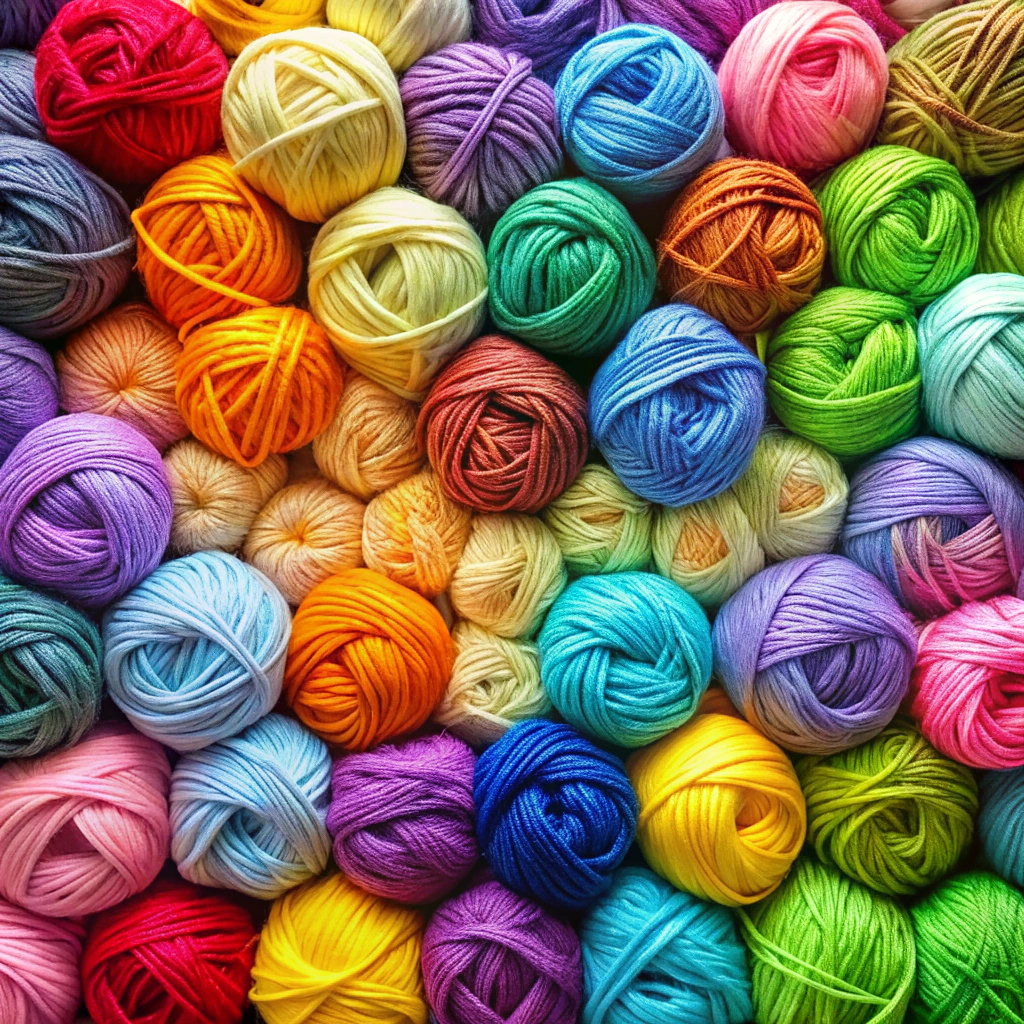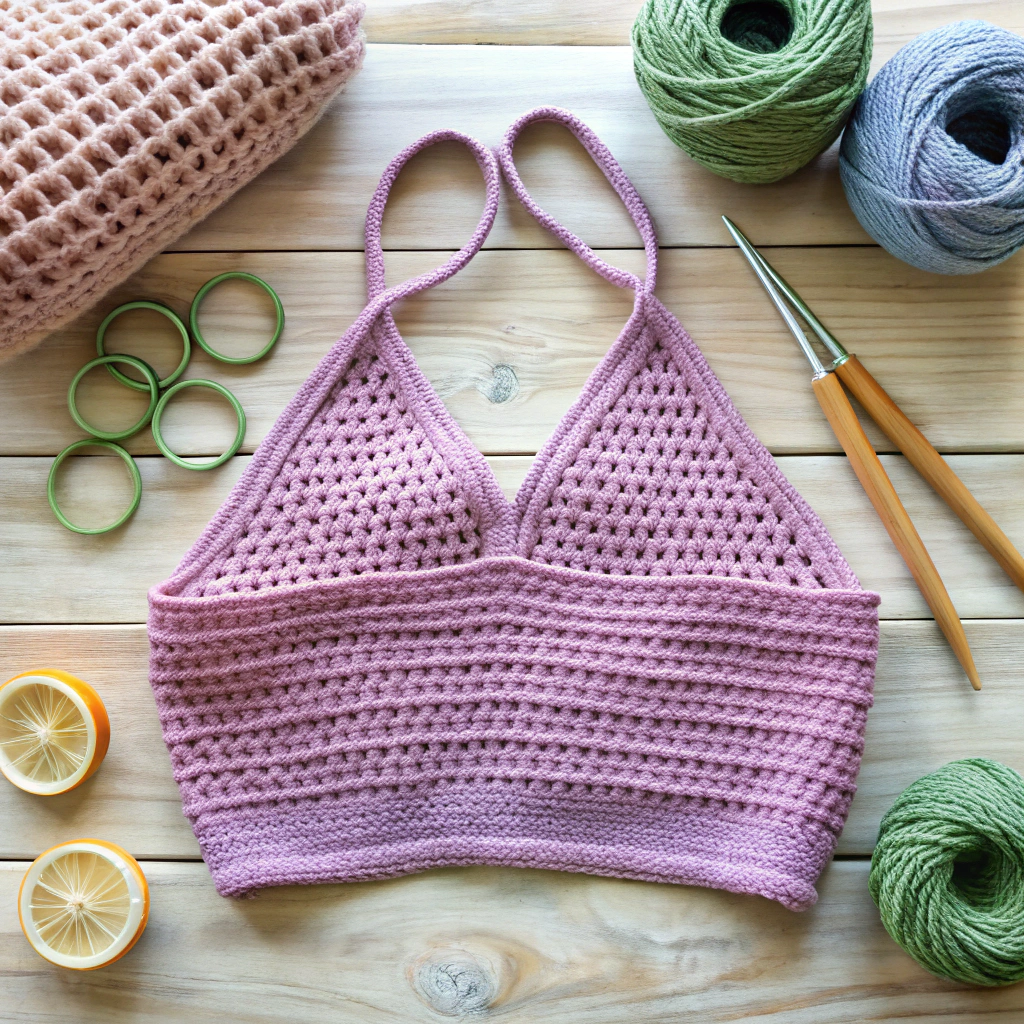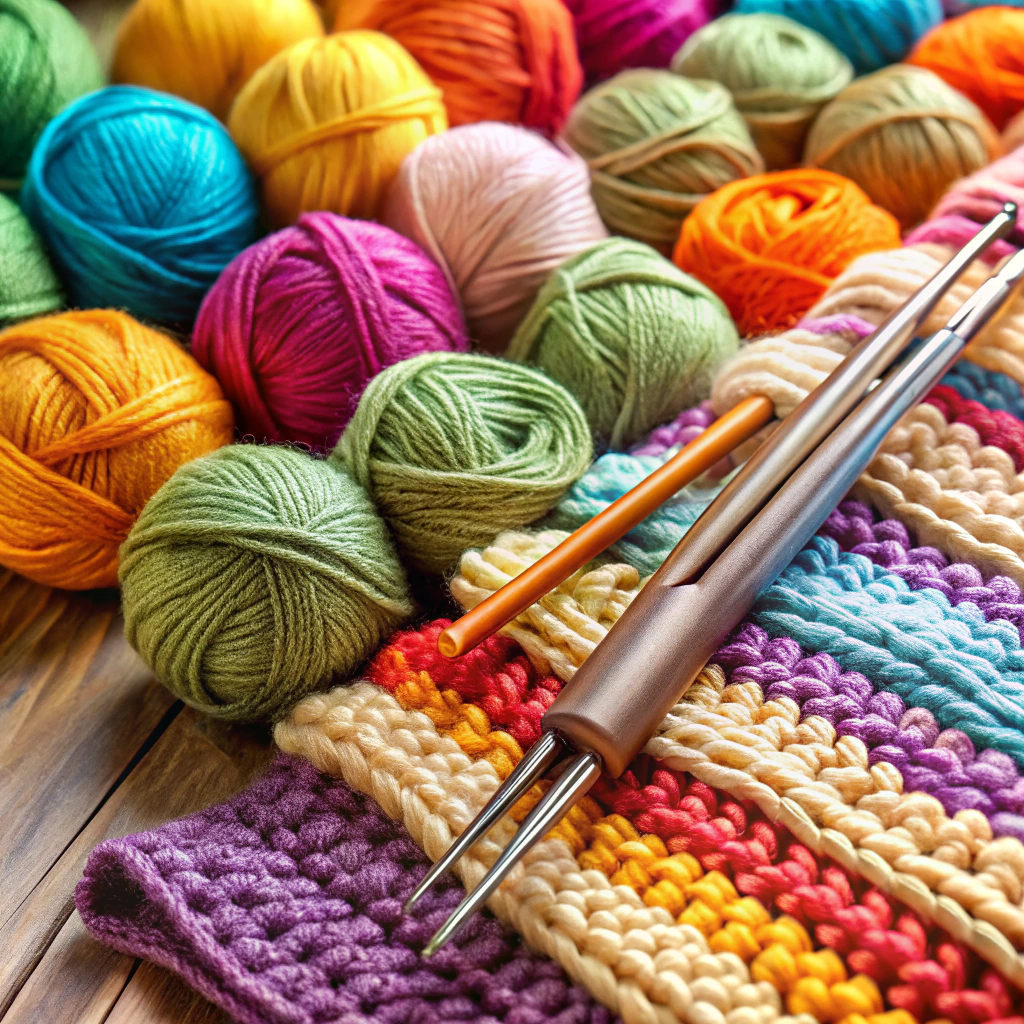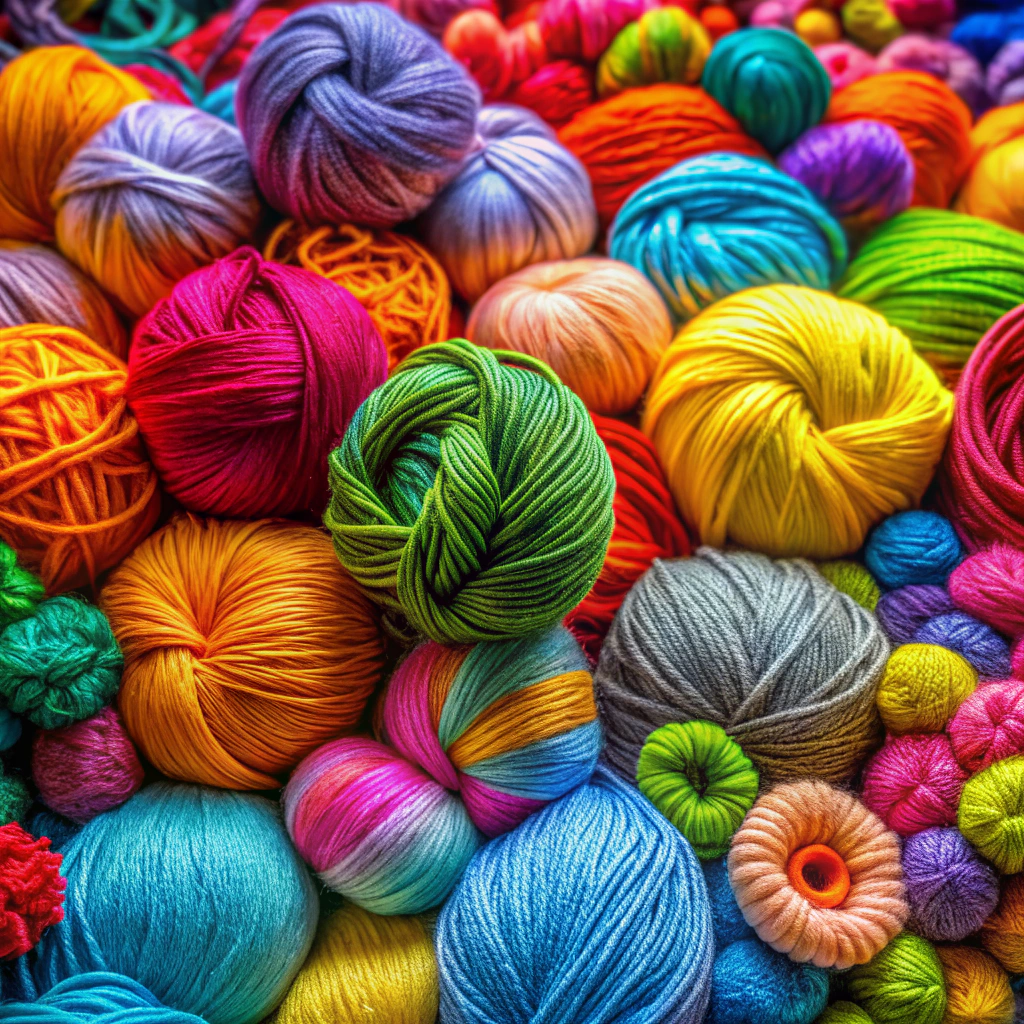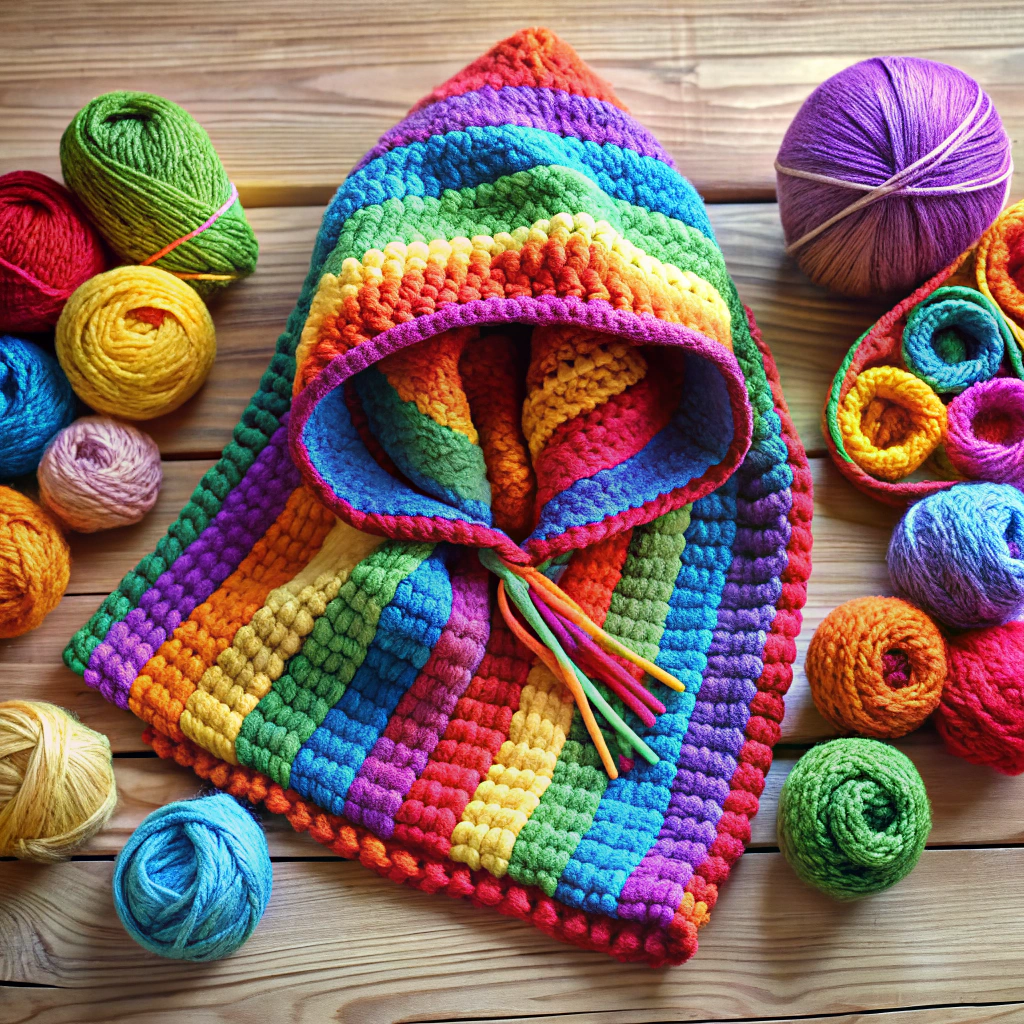This article outlines the essential tools and materials you need to start crocheting.
Key takeaways:
- Beginners should start with thicker yarn for easier handling.
- Size H (5mm) hook works well for beginners.
- Essential tools include scissors, tapestry needle, and stitch markers.
- Acrylic yarn is affordable and forgiving for beginners.
- Consider hook size, material, and ergonomics for comfort and precision.
Crochet Basics: Discover What Items You Need to Start Crocheting Today
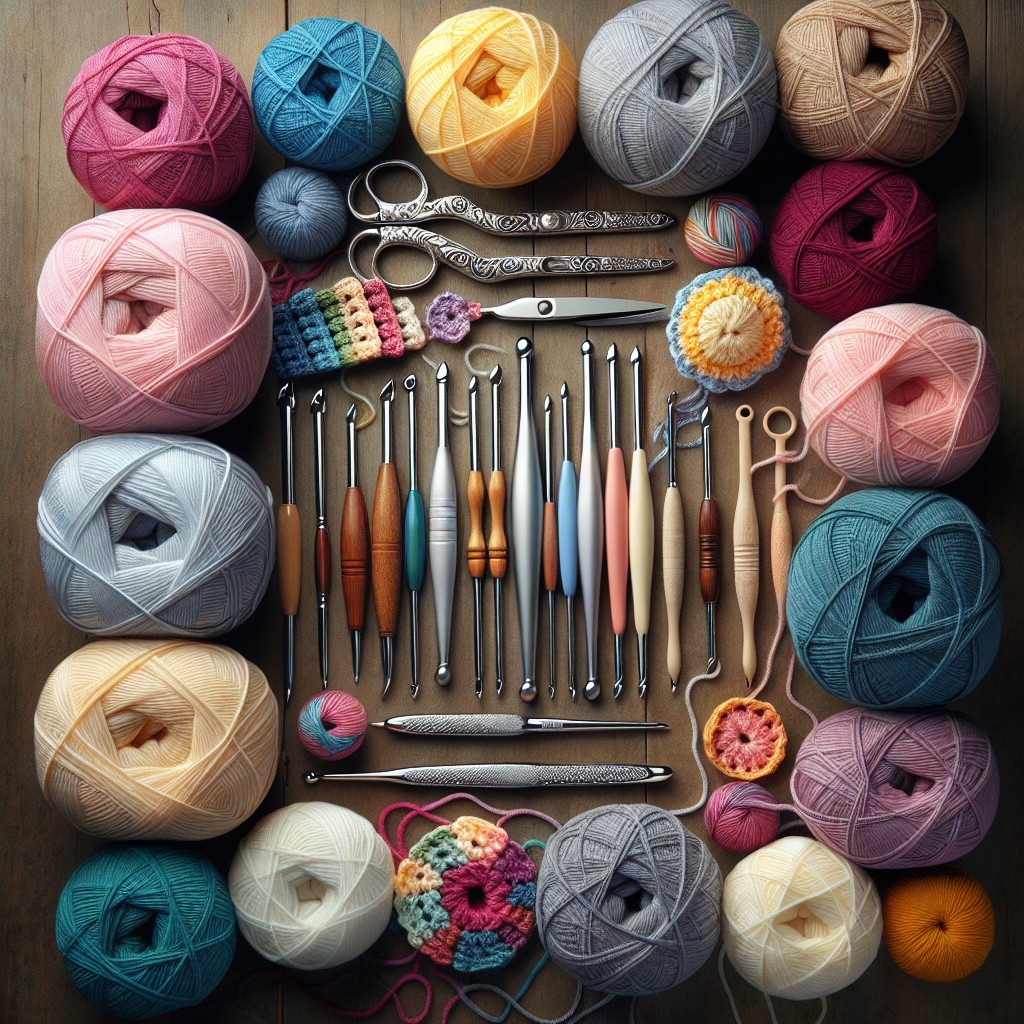
Starting to crochet is like opening a treasure chest of creative possibilities. First, gather your yarn; the thicker, the easier it is to handle for newbies. Next, pick a crochet hook. For beginners, a size H (5mm) hook works well with most medium-weight yarns. This size is comfortable to grip and helps you see your stitches clearly.
Grab a pair of scissors for snipping yarn and a tapestry needle for weaving in ends once your project is complete. Don’t forget stitch markers; they’re lifesavers for marking your spot or noting important places in a pattern.
With these tools, you’re all set to embark on your crocheting journey. Each piece you create adds a stitch to your growing tapestry of skills. Happy crafting!
The Essential Crochet Tools
Yarn kicks off your crochet journey, with a plethora of textures and hues at your disposal. Choose lighter colors when starting out; they make it easier to see your stitches.
Crochet hooks are your main tool. As a beginner, opt for a medium size, such as an H/8 (5mm) hook, which is forgiving for novices learning stitch consistency.
Scissors need to be part of your toolkit for snipping yarn. Any sharp, small pair will do.
Stitch markers help you keep your place in complex patterns. They’re invaluable when you’re learning to count stitches or working in rounds.
A tapestry needle finishes off your project by weaving in loose ends, ensuring your work doesn’t unravel. Choose a needle with a large eye to make threading easier.
These items lay the foundation for you to start creating anything from scarves to blankets, imbuing your days with endless creative potential.
Yarn
Yarn comes in various weights, materials, and colors, each suitable for different projects. For beginners, acrylic yarn is affordable and forgiving, perfect for practicing new stitches. Wool and cotton are great natural fiber options, offering warmth and softness or coolness and durability, respectively.
Consider the yarn weight, which ranges from super fine to super bulky. Heavier weights like chunky yarns are ideal for quick projects like scarves, while finer yarns are better for detailed work like amigurumi.
Always check the care instructions provided on the yarn label to maintain the quality of your finished projects. Washability is key, especially for items like baby clothes or kitchen accessories.
Crochet Hooks
Crochet hooks come in various sizes and materials, each suited for specific yarn weights and projects. For beginners, aluminum hooks are a good choice as they are smooth and affordable, allowing the yarn to glide easily. As you advance, you might explore hooks made from wood, plastic, or bamboo, which can offer a different feel and grip.
Size is crucial. The thickness of the hook determines the size of the stitches. A larger hook creates looser stitches, while a smaller hook produces tighter, more compact stitches. Most patterns specify the hook size you’ll need, so following those suggestions can help your project turn out as expected.
Ergonomics also matter, especially for those who crochet frequently or have hand pain. Ergonomic hooks are designed to fit comfortably in your hand, reducing strain and fatigue. They can be a game-changer for extending your crochet sessions and improving overall enjoyment of the craft.
Remember, the right hook can make a significant difference in your crochet experience and the final appearance of your project. Experiment with different types and sizes to find what works best for you.
Scissors
A good pair of scissors is indispensable in your crochet toolkit. Not only do they help you snip your yarn efficiently, but they also keep your project tidy by managing loose ends. Opt for a sharp, compact pair that fits comfortably in your hand. Small embroidery scissors are often a favorite among crocheters for their precision in cutting yarn close to the work without damaging it. Remember, dull scissors can cause yarn to fray or split, making your work look messy. Keep your scissors exclusive to your crafting kit to maintain their sharpness.
